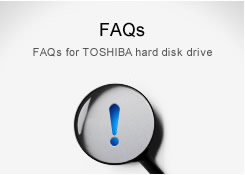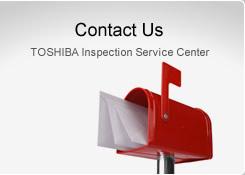- Partner Program

- Press Room

- Contact Us

- Language



- Does Toshiba’s Hybrid Drive require me to do anything for the drive to operate?
-
Nothing special is needed to realize the performance and responsiveness benefits of Hybrid Drive. The Toshiba MQ01ABDH Hybrid Drive is a fully integrated solution, designed with sophisticated self-learning caching algorithms that learn the user’s data access patterns to maximize performance.

- How does the Hybrid Drive operate?
-
The Toshiba MQ01ABDH Hybrid Drive tracks which files, applications and data are requested by the host system user. The self-learning algorithms analyze these usage patterns to determine the frequency which the data may be accessed. While all data is written to the disk for long-term storage, frequently accessed data is placed in the NAND flash for fast response to near-future accesses. When the usage pattern indicates the data is no longer frequently used, the Toshiba Hybrid Drive will remove the data from the NAND flash. In this way, the self-learning algorithms direct when and how long the data is retained in the NAND flash. This functionality helps to maintain optimum performance from the MQ01ABDH Hybrid Drive and also contributes to prolonging the durability of the NAND flash.

- Is there a particular system configuration which will give me the best possible performance from the Toshiba Hybrid Drive?
-
Based on Toshiba’s internal testing, the best user experience for performance and responsiveness will be realized in PC systems that support a 64-bit operating system, 4GB of memory and a default storage device setting to HDD (versus SSD) to accommodate BIOS operations. SATA interface connectivity at 6Gbits/second will also help speed performance between the main processing chipsets and the Toshiba MQ01ABDH Hybrid Drive. System drivers, such as those integrated with recent generation Intel chipsets (referred to as Intel Rapid Storage Technology), can also help edge up performance from Hybrid Drive.

- How do I know the Toshiba Hybrid Drive will perform for me?
-
Toshiba is using the currently established industry methods for measuring performance for Hybrid Drives. The criteria is stringent, and specifies a PCMark Vantage HDD Sub Score of 16,000, a PCMark Vantage HDD Video Editing Score of 80MB/second, and a resume from hibernate (S4) of <7 seconds from the time the keyboard is touched. These criteria are geared to provide a consistently positive user experience for read and write performance as well as drive responsiveness. Toshiba is able to meet each of these criteria and in some instances, surpasses these metrics.

- Are there any unique commands that the Toshiba Hybrid Drive supports?
-
Toshiba does not utilize any specific commands to operate or provide the performance and application responsiveness we have defined for the Toshiba MQ01ABDH Hybrid Drive. Because the Toshiba Hybrid Drive manages all the NAND flash and self-learning operations, and appears to the user as a single device, the MQ01ABDH interacts with the host in the same manner as conventional HDDs.

- I have heard about hybrid drives, Solid State Hybrid Drives as well as dual-drive cache plus HDD solutions. Is Toshiba offering anything new or unique with its Hybrid Drive?
-
Toshiba released the world’s first laptop PC in 1985 and developed the first NAND flash device in 1991. With this well-established expertise in these key technologies, Toshiba has been able to integrate the NAND flash and HDD technologies in a manner that optimizes the core functionalities of the various parts. Toshiba can therefore achieve levels of performance and responsiveness in our Hybrid Drive technology today, using less NAND flash space and specific host-device coding methods than the industry is prescribing for enhanced performance storage solutions.

- In addition to faster performance and improved system responsiveness, are there any other benefits of Hybrid Drive?
-
In addition to enhanced performance and responsiveness, Hybrid Drive also draws upon the cost-efficiencies associated with conventional HDDs. The MQ01ABDH Hybrid Drive technology combines the best attributes of NAND flash and hard disk drives (HDDs), to provide dramatically increased data processing speeds, high storage capacity and low cost. The MQ01ABDH provides many of the performance benefits of solid state drives (SSDs) at a significantly lower price point.

- How about battery life – will Toshiba Hybrid Drive prolong the battery life of my system?
-
Toshiba is not specifying any specific energy efficiencies for the MQ01ABDH Hybrid Drive, primarily because battery life is a system-level metric and is also highly dependent on actual usage. However, from a design standpoint, usage of the MQ01ABDH should provide better energy efficiencies when equating speed and performance against power consumption from a non-hybrid storage device. The MQ01ABDH can also function in a lower power state longer than conventional HDDs because frequently used data may already reside in the NAND flash area of the Hybrid Drive, thereby avoiding higher power-consuming direct disk accesses.

- I have heard that NAND flash can wear out over time. What happens if the NAND component in the Toshiba Hybrid Drive reaches its endurance limit? Will data be lost?
-
Should the user exceed the endurance limit of the NAND flash, the Toshiba MQ01ABDH will continue functioning as a conventional HDD. However, before the NAND flash component reaches the endurance limits, its performance will gradually decline. Due to Toshiba’s NAND flash caching algorithms and data protection mechanisms, Toshiba does not expect an increased risk of data loss resulting from aging of the NAND flash on the Toshiba MQ01ABDH Hybrid Drive during the expected lifetime of a PC.

- I have heard that NAND flash can wear out over time. What happens if the NAND component in the Toshiba Hybrid Drive reaches its endurance limit? Will data be lost?
-
Should the user exceed the endurance limit of the NAND flash, the Toshiba MQ01ABDH will continue functioning as a conventional HDD. However, before the NAND flash component reaches the endurance limits, its performance will gradually decline. Due to Toshiba’s NAND flash caching algorithms and data protection mechanisms, Toshiba does not expect an increased risk of data loss resulting from aging of the NAND flash on the Toshiba MQ01ABDH Hybrid Drive during the expected lifetime of a PC.

- What is the durability rating of the drive, and how is this measured?
-
The industry standard for NAND flash endurance for Windows clients is 20GB of writes to a solid state storage device per day. This is 16GB greater than the real-life daily average Toshiba has measured for most end users over several years of user testing. To determine Hybrid Drive reliability, Toshiba applied the industry standard for NAND flash, JEDEC JESD218, and coupled it with Toshiba’s high reliability standards applied to our product line of conventional HDD offerings.

- When will Toshiba Hybrid Drives be available for purchase?
-
The Toshiba MQ01ABDH is currently shipping to PC system manufacturers. First systems to utilize the MQ01ABDH began shipping in October for holiday 2012 sales. Toshiba plans to expand the availability of the MQ01ABDH Hybrid Drive throughout the coming year and utilize the Hybrid Drive on generations of products to come.





